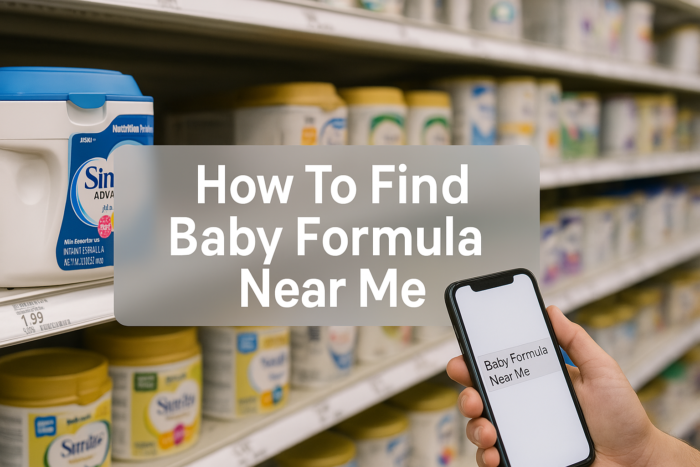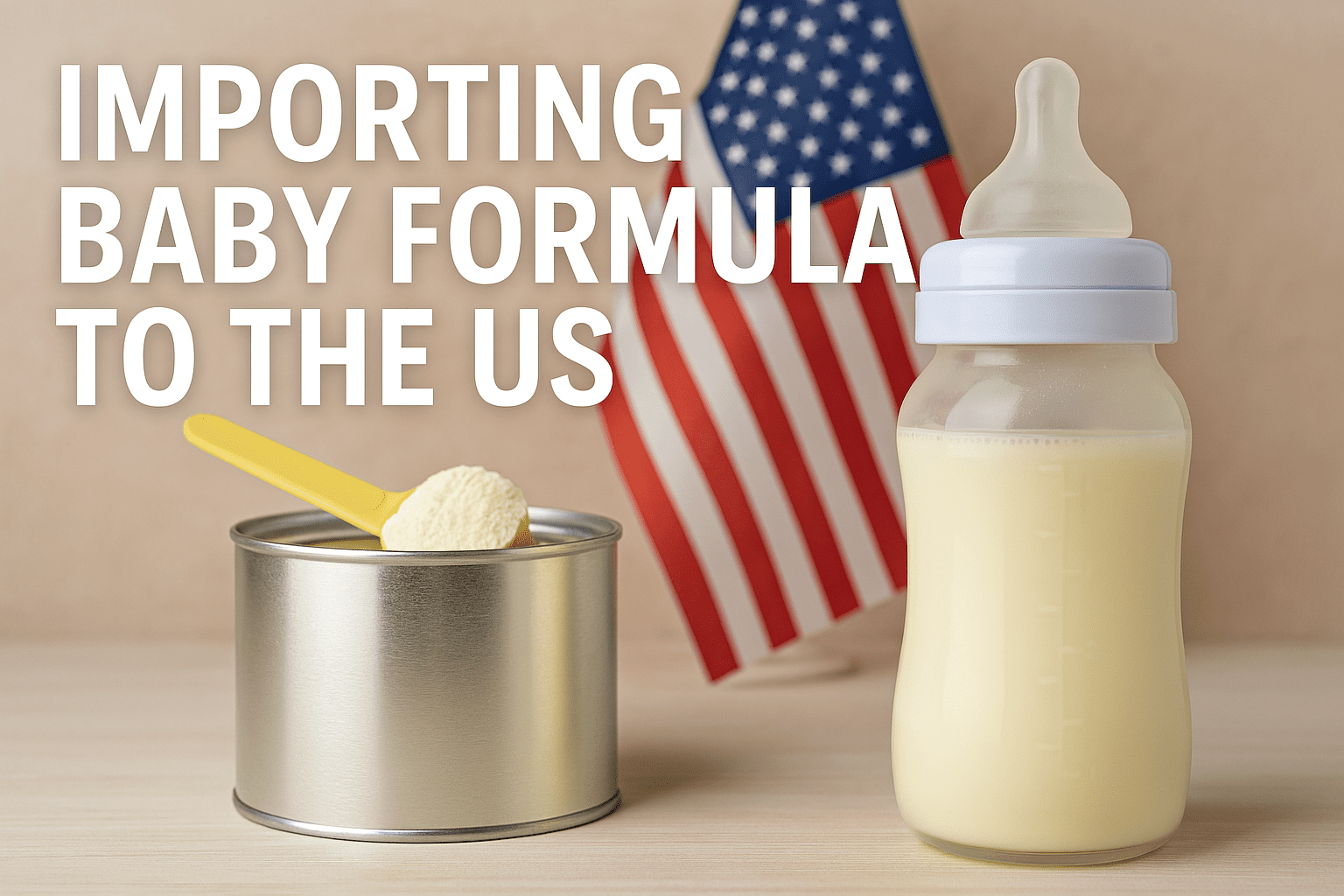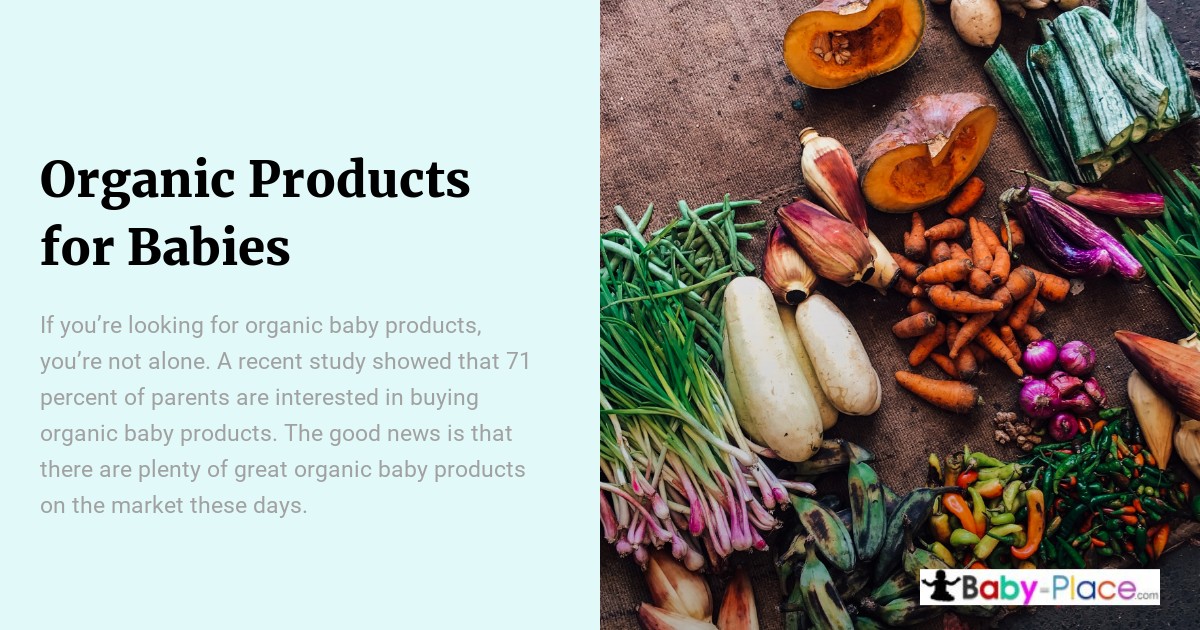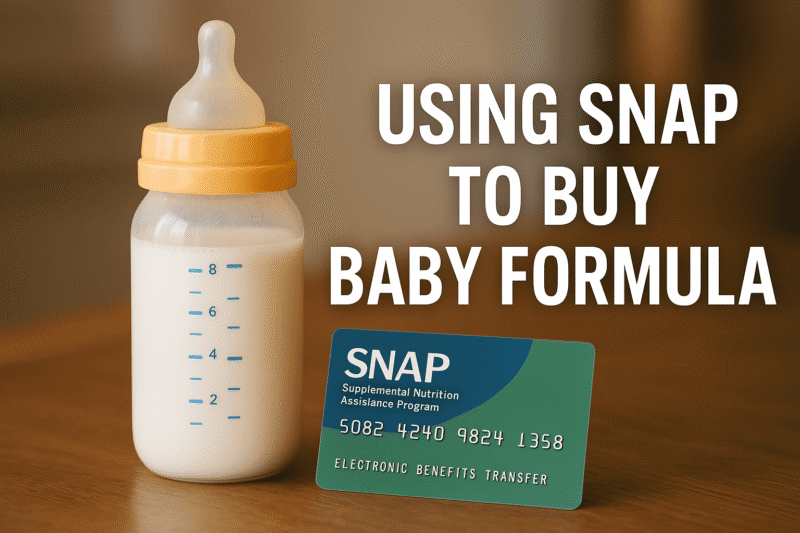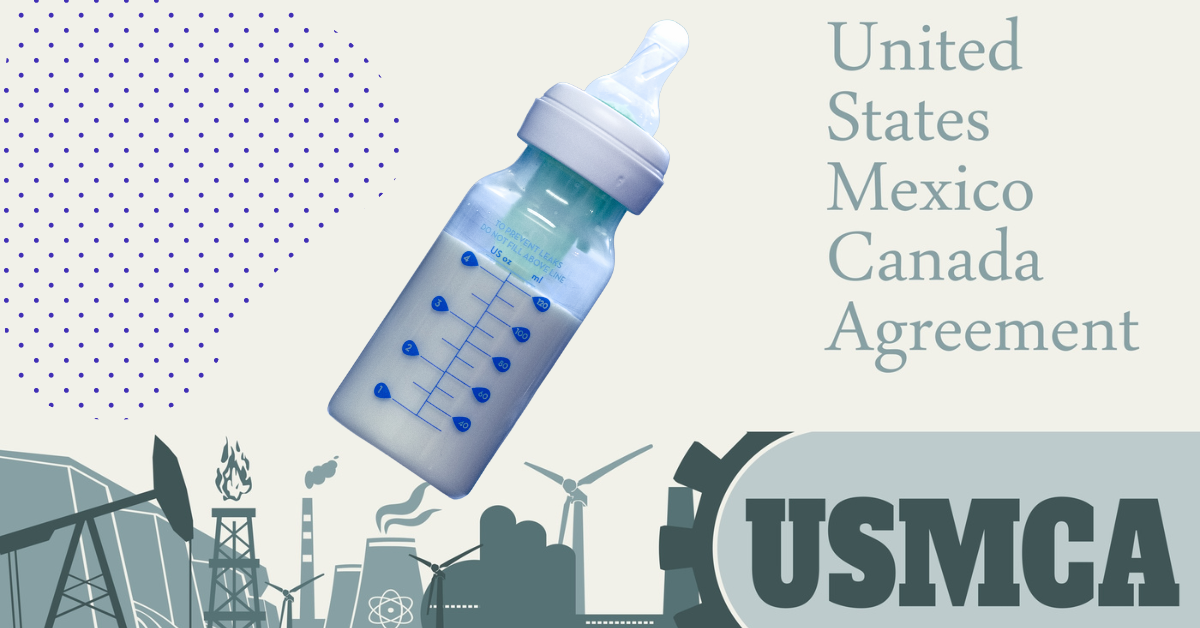
The introduction of tariffs on baby formula has been a long-standing issue, with passionate opinions on both sides. It’s an emotional debate that brings out the strongest feelings in those involved. For many parents and families, this is more than just an economic policy—it’s about providing for their children.
At its core, the argument boils down to whether or not it makes sense to impose tariffs on imported infant formula. On one hand, proponents argue that these tariffs will help protect domestic manufacturers from foreign competition, thus helping them remain profitable. On the other hand, opponents point out that higher prices due to tariffs would hurt consumers who rely heavily on imported products like baby formula. Ultimately, it comes down to which side can make their case most convincingly and convince lawmakers to take action.
Potential Impacts On Consumers
Given the potential for a baby formula tariff to be implemented, it is important to consider what effects this could have on consumers. The impacts of tariffs can vary according to different factors such as product availability and prices.
The first impact would be an increase in the cost of imported products. Tariffs require companies importing goods into a country to pay taxes at predetermined rates, often resulting in higher prices for those same goods upon reaching consumers. This means that parents who rely on foreign-made formulas may face substantially increased costs if these tariffs are imposed.
Another issue to consider is reduced access to certain types of formulas due to decreased importation. For example, if the manufacturers of premium or specialty formulas decide that paying the extra duties will not make their products profitable enough, they may stop selling them within affected countries all together. In turn, this could create shortages where parents find themselves unable to purchase certain brands or types of formula at any price.
Finally, there is also potential for suppliers located within affected countries to take advantage of any new situation by raising their own prices above normal market levels with little consequence from enforcement agencies or consumer advocacy groups – leaving customers facing even more expensive options than before the tariff was put in place.
To summarize:
- Increased Cost:
- Higher cost for imported goods
- Premium/specialty brands may become unavailable
- Reduced Accessibility:
- Shortages caused by reduced importation
- Suppliers taking advantage of lack of oversight
These issues demonstrate how a baby formula tariff could negatively affect consumers who rely on imported items for their child’s nutrition needs.
Economics Behind The Tariffs
The devastating impact of tariffs on baby formula is clear. Stacks of empty shelves and strained faces from desperate parents bring a stark reality to the situation; one that isn’t easily forgotten. It’s easy to understand why these tariffs are so controversial, but what about their economic implications?
From an economics standpoint, there is much debate surrounding the efficacy of tariffs as a trade policy tool. In this case specifically, the idea behind imposing tariffs was to raise prices for foreign competitors in order to make domestic producers more competitive. This can have significant positive impacts by providing incentives for manufacturers to invest in research and development while creating jobs domestically – all great things! However, if not managed correctly, it could also lead to higher prices for consumers due to inflated supply costs which would outweigh any benefits gained from increased innovation or job creation. Ultimately, careful consideration must be taken when deciding how best to balance these two sides of the equation.
History Of Baby Formula Trade
The modern history of baby formula trade began in the late 19th century, when it was first used as a substitute for breast milk. Since then, countries have implemented tariffs on imported and exported baby formula to protect their domestic industries from foreign competition. The most notable example is the US Tariff Act of 1930 which imposed high duties on imported baby formula products. This protectionist measure resulted in higher prices for consumers and reduced international trade in this sector.
In recent years, there has been an increase in free trade agreements between countries that address infant health issues related to baby formula production and consumption. These agreements allow for more open markets with fewer restrictions on imports and exports, while still providing protections for local producers against unfair competition. As such, these policies have helped create a more efficient global market for baby formula products without sacrificing consumer welfare or national sovereignty.
Current Regulations In Place
Interestingly, the history of baby formula trade has been intertwined with tariffs and regulations since it was first developed. As such, current regulations are in place to protect producers and consumers alike.
These include taxes on international shipments of infant formula, as well as restrictions on who can import or export products like this. In addition, governments often have rules about how much a company can charge for an item before it becomes too expensive for customers. Finally, different countries may impose their own limits on the quantity that can be imported or exported at any one time. All these measures ensure fair pricing and quality control within the industry.
It’s important to note that some nations don’t allow imports of any kind of infant formula whatsoever due to safety concerns or cultural preferences; thus ensuring domestic production remains unaffected by external competition. Furthermore, companies must follow certain labeling requirements so that buyers know what they’re getting when purchasing a product from abroad. This helps prevent potential health issues from occurring due to mislabeling or confusion over ingredients used in formulas outside of the country they were manufactured in. To sum up, various regulations exist around baby formula trade which aim to create a safe marketplace both domestically and internationally.
Alternatives To Tariffs
Rather than resorting to tariffs, there are other measures that can be taken in order to protect the domestic baby formula industry. The first is a subsidy program, which would provide financial support for local producers and help them compete with foreign companies. This could also include tax incentives or subsidies for research and development of new products. Another option is to increase import quotas, allowing for more imports but still maintaining some control over who gets access to the market. Finally, governments could use trade agreements such as free-trade agreements or preferential trading arrangements that give specific countries an advantage when it comes to exporting goods into certain markets.
These alternative measures have their own benefits and drawbacks; however, they can often be used alongside tariff policies if necessary. It’s important to consider all options before making any decisions when it comes to protecting the domestic baby formula industry from unfair international competition.
Reactions From Producers And Retailers
As you can imagine, the introduction of a baby formula tariff was met with mixed reactions from producers and retailers. On one hand, some producers were delighted to see their product become more expensive as that meant they could charge more for it. However, on the other hand, retailers who had already stocked up on supplies before the tariffs went into effect were not so pleased about having to pay extra for something that used to be cheaper.
| Reactions | Pros/Cons |
|---|---|
| Producers | +More profits -Less competition |
| Retailers | +Higher quality products -Higher prices |
The overall effects of these tariffs are still unfolding; while producers may see an increase in profits initially due to higher prices, this could lead to decreased demand over time if consumers choose less expensive alternatives or switch brands altogether. Meanwhile, retailers will likely experience lower margins as they try to absorb the cost of the tariffs rather than passing them onto customers directly.
It’s difficult to say what the long term impacts of these tariffs will be but it is clear that both producers and retailers need to prepare for a period of uncertainty until things settle down in the industry again.
Government Initiatives
In recent years, the U.S. government has acknowledged the potential negative impact of tariffs on baby formula and taken proactive steps to mitigate them. A number of federal initiatives have been implemented in response, including a tariff reduction program that allows some imported formulas to be exempt from duties. Additionally, the government has funded research into alternative production methods for infant nutrition products that are more eco-friendly and cost effective than traditional manufacturing techniques. Furthermore, tax credits may be available to companies that make investments in clean energy technologies related to baby formula production or distribution. Finally, subsidies can help offset any additional costs incurred due to tariffs imposed on imported formulas. These measures demonstrate a commitment by the U.S. government to support domestic producers while promoting environmentally friendly practices and providing economic relief to consumers affected by price increases caused by international trade agreements.
Effect On Businesses And Industries
The effects of the baby formula tariffs on businesses and industries are far-reaching. Take, for example, a small business in rural Ohio that produces premium organic baby formula for sale throughout the U.S. This business has been hit hard by the tariffs as their customers have had to pay higher prices due to increased costs from suppliers overseas.
These tariffs have impacted not only this specific company but also other related industries:
- Retailers:
- Struggle to maintain competitive pricing while still providing quality products
- Have seen decreased sales due to fewer people willing or able to purchase products at inflated prices
- Suppliers:
- Face difficulty sourcing materials needed for production
- Higher import taxes lead to much lower profits when exporting goods abroad
Ultimately, these new tariffs pose a challenge for all involved in the baby formula industry. Companies must find ways to remain profitable under difficult economic conditions while consumers are left with fewer choices and higher costs.
Public Opinion Surveys
Public opinion surveys have been conducted to gauge the effect of baby formula tariffs on consumers. The results of these surveys indicate that a majority of respondents are opposed to such tariffs, citing increased cost as their primary concern. This suggests that households with young children and those on lower incomes will be most affected by higher prices for infant formula due to tariff implementation. It is also evident from survey responses that some individuals may choose not to purchase certain brands or types of baby formula if they become too expensive. Given this clear opposition amongst surveyed populations, it appears unlikely that the proposed baby formula tariffs can gain widespread support. Therefore, any policy makers considering implementing such trade restrictions should take into account the potential impact on households across all income levels before making a final decision.
Impact On Global Manufacturing
The introduction of tariffs on baby formula has had an impact that goes far beyond the United States. The global market for manufacturing and distributing these formulas is complex and interconnected, with implications for countries around the world.
| Country | Current Tariffs | Expected Impact |
|---|---|---|
| US | 10% | Increased prices in local stores, decreased demand due to higher costs |
| Mexico | 0 | No change anticipated, as infant nutrition products are exempt from NAFTA regulations |
| China | 25% | Decrease in Chinese-made exports to US; increase in imports from other regions |
It appears that the effects of this tariff will be felt most heavily by both producers and consumers within the United States. The increased cost of domestically produced formulas may lead to a decrease in consumption, while imported goods will also incur additional expenses at the border. For manufacturers abroad, particularly those located in China, reduced access to the American market could result in significant losses. On the other hand, countries like Mexico have been spared any direct impacts since their infant nutrition products are exempt from North American Free Trade Agreement (NAFTA) regulation.
Overall, while it remains too early to tell what long-term consequences this tariff will bring about, there is no doubt that its introduction has disrupted international markets and called into question existing trade agreements. It is clear that further analysis must be done if we hope to understand how this policy decision will ultimately reshape global production and distribution networks.
Strategies For Adaptation
In the face of tariffs on baby formula imports, producers and suppliers must be prepared to adopt new strategies in order to remain competitive. These strategies can include:
- Adjusting pricing:
- Reducing costs by sourcing locally-made inputs such as ingredients or packaging materials.
- Increasing prices for consumers across all levels of the supply chain.
- Adapting marketing:
- Leveraging new digital media platforms to reach a wider customer base.
- Rebranding existing products with more innovative messaging that appeals to customers’ needs and values.
Through these measures, companies can remain viable while also providing high quality goods at affordable prices. To succeed, it is essential that businesses stay abreast of developments in tariff legislation, consumer trends, and industry technologies so they are able to quickly respond and adjust their operations accordingly.
The Role Of Ngos
As the world adapts to the new tariffs on baby formula, non-governmental organizations (NGOs) are emerging as an essential force in leading the charge. Like a beacon of light shining through thick fog, these NGOs have become a source of hope and guidance for parents and families affected by this change. With their international connections and networks, they can work cross-border to raise awareness about global trade restrictions and provide support to those who need it most.
Not only do NGOs offer much needed resources and advice, but they also serve as watchdogs—keeping governments honest when it comes to implementing fair and equitable policies that benefit all stakeholders. By advocating for human rights, transparency, and accountability within the industry, NGO’s ensure that tariff regulations are being implemented ethically and equitably across different countries. They also help build bridges between companies, communities, government officials, and other relevant entities so that everyone is working together towards a better outcome.
It’s clear that without NGOs actively engaged in developing solutions for infant formula tariffs there would be limited progress in mitigating its economic impact or ensuring greater fairness in global trading agreements. As such, we must continue to recognize their importance in order to make sure actions taken at both a local and global level truly reflect the needs of consumers while promoting responsible business practices worldwide.
Long-Term Outlook For Tariffs And Baby Formula Trade
The long-term outlook for tariffs and baby formula trade is uncertain. Tariffs are likely to remain in place as governments seek new sources of revenue and protectionist policies become more commonplace. However, there are some potential solutions that could help to ease the burden on importing nations while still allowing them to benefit from tariff income.
| Positive Outcome | Negative Outcome | |
|---|---|---|
| 1 | Price stabilisation | Decreased quality control standards |
| 2 | Increased local production capacity | Trade barriers for international suppliers |
| 3 | Improved market access for developing countries | Reduced transparency & accountability regarding imports/exports |
It is important for governments and industry stakeholders alike to take a proactive approach with regards to the implementation of these measures in order to ensure that any resulting outcomes will be beneficial rather than detrimental. It is also essential that dialogue between trading partners remains open so that all parties can work together towards mutually beneficial solutions. By doing this, we may finally see an end to the current impasse concerning baby formula tariffs.
International Cooperation
Moving on from the long-term outlook for tariffs and baby formula trade, international cooperation is essential in order to ensure that these products are getting into the hands of those who need them most. For example, an agreement between India and China could help both countries lower their respective tariff rates so that more affordable baby formula can be imported into each country.
When it comes to international cooperation regarding baby formula tariffs:
- Governments must come together to create mutually beneficial agreements.
- Corporations must work towards making their products available at fair prices for all consumers.
- NGOs should provide resources and assistance with advocacy efforts to bring attention to this issue.
International organizations such as the WTO have a major role to play when it comes to facilitating international dialogue about data sharing and best practices concerning infant nutrition access across borders. By engaging in such conversations, we can strive toward equitable solutions that meet everyone’s needs while also protecting domestic industries. Furthermore, global health initiatives that focus on improving maternal health outcomes through better nutrition will ultimately benefit families everywhere by providing greater access to safe and nutritious foodstuffs like baby formula.
It is clear that meaningful progress will require strong collaboration among governments, businesses, non-profits and other stakeholders around the world. With concerted effort and open communication, we can make sure that babies everywhere receive adequate nutrition for healthy growth and development – regardless of where they live or how much money their parents make.
Conclusion
As an expert on baby formula tariffs, I can confidently say that the issue is complex and ongoing. The economic implications of this type of taxation are far-reaching and have been in place for many years now. Consumers have had to adapt their purchasing strategies accordingly, while NGOs have pushed for better regulations within international trade agreements.
Going forward, it’s clear that there will be no easy solutions when it comes to implementing or removing these types of taxes. International cooperation between governments has become increasingly important as well if any real progress is going to be made. As a result, we must continue to work together towards finding a solution that works for everyone involved – including babies!
So let us all join forces, open our minds, and come up with some innovative ideas about how to reduce the impact of baby formula tariffs so that every little one out there can get access to the nutrition they need. After all, isn’t that what we all want?
Frequently Asked Questions:
What are the potential impacts of baby formula tariffs on consumers?
The potential impacts include increased costs for imported baby formula, reduced access to premium or specialty brands, and possible shortages due to decreased importation. Suppliers may also raise prices due to lack of oversight, further burdening consumers.
Why do proponents support tariffs on imported baby formula?
Proponents argue that tariffs protect domestic manufacturers from foreign competition, helping them remain profitable. This can incentivize investment in research and development and create domestic jobs.
What are some alternatives to tariffs for protecting the domestic baby formula industry?
Alternatives include subsidy programs for local producers, tax incentives, increased import quotas, and trade agreements like free-trade or preferential trading arrangements.
How have businesses and industries been affected by baby formula tariffs?
Businesses, especially small producers and retailers, face challenges like higher costs, difficulty sourcing materials, and decreased sales due to inflated prices. Some may struggle to remain competitive under these economic conditions.
What role do NGOs play in addressing baby formula tariffs?
NGOs raise awareness about trade restrictions, advocate for fair policies, and provide support to affected families. They also act as watchdogs to ensure ethical implementation of tariffs and promote transparency in global trade.






